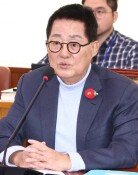Protecting teachers: Right to decline abusive complaints
Protecting teachers: Right to decline abusive complaints
Posted August. 15, 2023 08:20,
Updated August. 15, 2023 08:20
On Monday, the Ministry of Education unveiled a draft titled "Measures to Strengthen and Protect Teachers' Rights." Effective September 1, parents of primary, middle, and high school students will no longer be permitted to contact teachers directly. Instead, a dedicated "Complaint Response Team," consisting of the vice-principal and administrative heads, will address such concerns. Teachers can decline unsolicited approaches by parents via personal mobiles or social media. Moreover, should parents resort to abusive language or threats during meetings, teachers can rightfully end the conversation. This action directly results from the heightened call for more robust teacher protection, especially after the heartbreaking incident in Seoul's Seocho District, where a first-grade teacher tragically ended her life last month.
Many teachers are plagued by unwarranted calls from parents, ranging from academic queries to invasive personal questions or outright abuse. Such interruptions compromise their ability to concentrate on their core responsibility: imparting education. The MoE’s proposal to centralize complaints and enforce scheduled face-to-face meetings in specified rooms is a promising step toward alleviating these pressures.
Another pressing concern is the unwarranted child abuse allegations against teachers. Reports of disruptions during classes surged from 1,197 in 2020 to a staggering 3,035 last year. Yet, an alarming majority of teachers admit they tolerate these disruptions. Taking the initiative sometimes backfires with accusations of child abuse, possibly leading to suspensions or investigations. Astonishingly, there are instances of teachers being reported for child abuse simply for instructing students to retrieve forgotten textbooks. With such constraints, how can teachers effectively conduct their classes? It's imperative to distinguish genuine misbehaving students from victimized teachers, and a legal overhaul is crucial to prevent legitimate disciplinary actions from being misconstrued as child abuse.
However, as we champion stronger rights for teachers, it's paramount that the policies are nuanced. Constraining parent-teacher communication may inhibit vital feedback. Hence, improved communication avenues must also be integrated. While the idea of documenting severe teacher rights violations seems apt in school records of such students, it could be a litigation minefield, demanding prudent execution. The crux of reinforcing teacher rights is to reinvigorate schools and re-establish trust in public education. Balancing rights and duties between teachers, students, and parents is the cornerstone of this mission.







